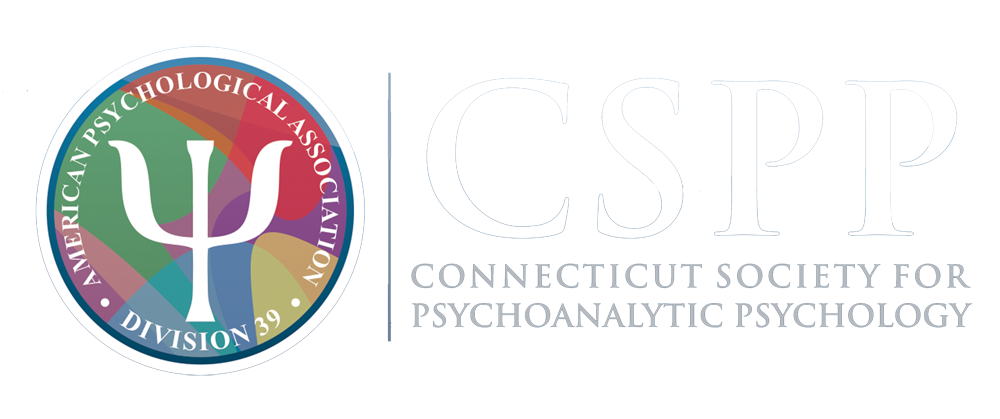The Connecticut Society for Psychoanalytic Psychology
Presents
Todd Essig, PhD
Psychoanalysis, Technology, And Innovation:
Is Shared Embodiment An Essential Feature
or A Disposable Commodity?

Saturday January 25, 2020
10:30 am – 12:30 pm
The New Haven Lawn Club
193 Whitney Ave, New Haven
Lunch will follow for all attendees
Register online for $10 discount!
Speaker
Todd Essig, PhD is Training and Supervising Psychoanalyst at the William Alanson White Institute. Widely known as a pioneer in the innovative uses of mental health technologies, he publishes and lectures widely. He has served on editorial boards for Contemporary Psychoanalysis and JAPA and recently co-edited a special issue of Psychoanalytic Perspectives on psychoanalysis and technology. He currently writes “Managing Mental Wealth” for Forbes where he covers the intersection of technology, psychology, and culture. His practice is in New York City where he treats individuals and couples, almost all of whom come to his office. You can read his Forbes essays at: www.forbes.com/sites/toddessig/#5d7eb0574d99
Summary
Distance treatment is often seen as fulfilling the innovative promise of extending psychoanalytic treatment world-wide. Such technologically-mediated treatments suggest democratization, continuity, convenience, and cost-effectiveness. But is this really the case? Are the similarities between shared embodiment and technologically-mediated presence really sufficient enough for routine use? Or are the processes and outcomes of psychoanalytic care significantly, perhaps radically, altered when treatment takes place via screen or speaker? This presentation will explore how techno-dreams of routinely good-enough remote therapy presents both promise and peril.
Learning objectives
1. Participants will be able to define screen relations.
2. Participants will be able to identify 3 qualities that differentiate screen relations from shared emodiment.
3. Participants will be able to describe 3 clinical processes fundamentally changed when treatment is conducted remotely.
Suggested readings
Bayles, M. (2016). A review of Screen Relations: The Limits of Computer-Mediated Psychoanalysis and Psychotherapy by Gillian Isaacs Russell. Contemporary Psychoanalysis, 52(4):653-659
Essig, T., & Russell, G. I. (2017). A note from the guest editors. Psychoanalytic Perspectives, 14(2), 131-137. PDF
Turkle, S., Essig, T., & Russell, G. I. (2017). Afterword: Reclaiming psychoanalysis: Sherry Turkle in conversation with the Editors. Psychoanalytic Perspectives, 14(2), 237-248.
You can read more from Dr Essig at: www.forbes.com/sites/toddessig/#5d7eb0574d99
Conference Schedule
10:00 – 10:30 Registration and Continental Breakfast
10:30 – 12:30 Presentation
12:30 – 1:30 Lunch for all Attendees Included in the Conference Fee
Participants
The conference is appropriate for professionals interested in the practice of psychoanalysis and psychoanalytic psychotherapy. The instructional level of this conference is intermediate.
Location
The New Haven Lawn Club
193 Whitney Ave, New Haven
If there are concerns about the weather, check back here for updated information about the conference.
To Register and Pay
Register and pay online with your credit card. Because of the extra bookkeeping actions required, we would like to encourage you to register online, where fees are discounted by $10.
Mail-in and on site registration will be $10 higher than the listed online registration fees for all categories of members and non-members.
To pay by check, print and fill out the mail-in Registration Form and mail with your check to Conference Registrar, Matt Bukowski, LPC, 386 Prospect St. Apt. A1, New Haven, CT 06511. Mailed registrations must be postmarked by January 13 to ensure arrival in time.
Refunds will be given in full if the Conference Registrar, Matt Bukowski is contacted at Matt Bukowski no later than the Monday before the conference.
Members - remember to log in to register as a member.
Continuing Education
This conference has been approved for for 2 continuing education hours (NASW & Div. 39)
Division 39 is committed to accessibility and non-discrimination in its continuing education activities. Participants are asked to be aware of needs for privacy and confidentiality throughout the program. If program content becomes stressful, participants are encouraged to process these feelings during discussion periods. If participants have special needs, we will attempt to accommodate them.
Please address questions, concerns and any complaints to Ellen Nasper, PhD, at Ellen Nasper.
Art: René Magritte, The Art of Conversation
